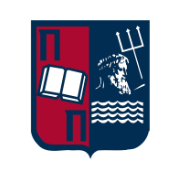Διοίκηση Έργων Πληροφορικής |
|
|---|---|
| Διδάσκοντες | Ελένη-Λασκαρίνα Μακρή |
| Κατηγορία μαθήματος | Ε/ΣΛΔ |
| Κωδικός μαθήματος | ΨΣ-923 |
| Πιστωτικές μονάδες | 5 |
| Ώρες μαθήματος | 3 ώρες |
| Ώρες εργαστηρίων | 2 ώρες |
| Ηλεκτρονικό υλικό | Προβολή στον Αρίσταρχο (Open e-Class) |
Μαθησιακά Αποτελέσματα
Στα πλαίσια του μαθήματος παρουσιάζονται οι βασικές έννοιες της διοίκησης έργων που αφορούν στην κατασκευή πληροφοριακών συστημάτων και υπηρεσιών και η μελέτη του ευρέως αποδεκτού μεθοδολογικού πλαισίου διοίκησης έργων του Ινστιτούτου Διοίκησης Έργων (Project Management Institute – PMI) των ΗΠΑ. Χρησιμοποιείται από τους φοιτητές και τις φοιτήτριες το πλαίσιο PMI μέσω διαθέσιμων εργαλείων διοίκησης έργων προκειμένου να ασκηθούν και να αποκτήσουν σχετικές εμπειρίες κατά την πρακτική-εργαστηριακή τους άσκηση.
Ολοκληρώνοντας επιτυχώς το μάθημα οι φοιτητές και φοιτήτριες θα είναι σε θέση να:
- Αναγνωρίζουν την ανάγκη διοίκησης (διαχείρισης) των έργων ψηφιακής τεχνολογίας όπως κάθε άλλου έργου.
- Αναγνωρίζουν σημαντικά ζητήματα που ανακύπτουν κατά τη διάρκεια των διαδικασιών διοίκησης ψηφιακών έργων.
- Περιγράφουν βέλτιστες πρακτικές στις διαδικασίες διαχείρισης ψηφιακών έργων και να ακολουθούν μια μεθοδολογία διοίκησης ψηφιακών έργων – από τη σύλληψη του έργου μέχρι την ολοκλήρωση του.
- Αναπτύσσουν δομές ανάλυσης εργασιών (WBS).
- Αναπτύσσουν σχέδια έργων (project plans).
- Αναπτύσσουν επιχειρησιακές περιπτώσεις (business cases).
- Περιγράφουν τις βασικές αρχές και τους τομείς απόδοσης διαχείρισης έργων κατά PMI.
- Χρησιμοποιούν διάφορες τεχνικές και μεθόδους για την εκτίμηση των χρονοδιαγραμμάτων και προϋπολογισμών έργων
- Χρησιμοποιούν διάφορες τεχνικές και μεθόδους για την παρακολούθηση της προόδου των έργων
- Χρησιμοποιούν τεχνικές για την κατανομή και εξισορρόπηση των πόρων
- Κατανέμουν δραστηριότητες και πόρους με τη χρήση λογισμικού διαχείρισης έργων
- Σχεδιάζουν χρονοδιάγραμμα Gantt/PERT με τη χρήση λογισμικού διαχείρισης έργων
- Παρακολουθούν την πρόοδο κάθε έργου με τη χρήση λογισμικού διαχείρισης έργων
Περιεχόμενο Μαθήματος
- Βασικές αρχές διοίκησης έργων (π.χ. ορισμός έργων, τυπολογία έργων, βασικά χαρακτηριστικά έργων). Συστημική προσέγγιση της διοίκησης έργων. Η επίδραση της οργανωτικής δομής στη διοίκηση έργων.
- Αρχές και τομείς απόδοσης διοίκησης έργων κατά PMI (PMBOK: 12 αρχές και 8 τομείς απόδοσης έργων)
- Κύκλοι ζωής έργων, πληροφοριακών συστημάτων και υπηρεσιών. Μεθοδολογίες διοίκησης ψηφιακών έργων (π.χ. φάσεις, παραδοτέα).
- Ανάπτυξη επιχειρησιακών σχεδίων έργων (π.χ. μετρήσιμη οργανωσιακή αξία, μελέτη εφικτότητας, ανάλυση επικινδυνότητας, μελέτη κόστους-οφέλους, οικονομικά μοντέλα μέτρησης απόδοσης).
- Διαχείριση χαρτοφυλακίου έργων (π.χ. μέτρηση απόδοσης οργανισμού με τη μετρική Balanced Scorecard).
- Ανάπτυξη καταστατικού και σχεδίων διοίκησης έργων.
- Διαδικασία ανάπτυξης δομής ανάλυσης εργασιών. Μέθοδοι εκτίμησης διάρκειας και κατανάλωσης πόρων (π.χ. top-down method, bottom-up method, guess estimating method, Delphi method). Μετρικές και προσεγγίσεις τεχνολογίας λογισμικού (π.χ. Function Point Analysis, COCOMO).
- Τεχνικές και εργαλεία για την εκτίμηση του χρονοδιαγράμματος έργων. Διαγράμματα Gantt. Δικτυακά διαγράμματα. Μέθοδος κρίσιμου δρόμου CPM/PERT. PDM Δίκτυα. Κατανομή και εξισορρόπηση πόρων.
- Ανάλυση απόδοσης έργων (π.χ. ανάλυση διακύμανσης, παραγόμενη αξία). Παρακολούθηση δεικτών απόδοσης έργων (π.χ. SPI, CPI). Πρόβλεψη ολοκλήρωσης έργων (π.χ. προβλεπόμενο κόστος ολοκλήρωσης έργου και προβλεπόμενο κόστος στην ολοκλήρωση).
Συνιστώμενη Βιβλιογραφία
– Προτεινόμενη Βιβλιογραφία:
- Δημητριάδης Α (2019): Διοίκηση – Διαχείριση Πληροφοριακών Έργων, 5η έκδοση, Εκδόσεις Νέων Τεχνολογιών.
- Burke Rory (2014): Διαχείριση έργου, Εκδόσεις Κριτική ΑΕ
- Δημητριάδης Α (2009): Διοίκηση – Διαχείριση Πληροφοριακών Έργων, Εκδόσεις Νέων Τεχνολογιών.
- Phillips Joseph Χ (2007): Διαχείριση Έργων Πληροφορικής, Γκιούρδα & Σια ΕΕ
- Project Management Institute (2021): A Guide to the Project Management Body of Knowledge, Seventh Edition (PMBOK Guide), Project Management Institute.
- Marchewka (2016): Information Technology Project Management: Providing Measurable Organizational Value, Wiley.
- Schwalbe K (2013): Information Technology Project Management, Cengage Learning.
- Phillips J (2010): IT Project Management: On Track from Start to Finish, McGraw-Hill Education.
- Maizlish and R. Handler (2010): IT Portfolio Management Step-by-Step: Unlocking the Business Value of Technology, Wiley.
- Nicholas J (2004): Project Management for Business and Engineering: Principles and Practice, Butterworth-Heinemann.
– Συναφή επιστημονικά περιοδικά:
- International Journal of Information Technology Project Management (IJITPM), IGI Global
- International Journal of Project Management, Elsevier

